Nội Dung Chính
Vocabulary
1. Match the words (1-6) to their definitions (A-F).
| Words | Definition |
| 1. drought 2. mudslide 3. flood 4. tsunami 5. tornado 6. earthquake | A. a violent storm with very strong winds which move in a circle B. a huge wave that can destroy towns near the sea C. a long period when there is no rain and not enough water for people, animals and plants D. a large amount of water covering an area that is usually dry E. a sudden, violent shaking of the Earth's surface F. a large amount of mud sliding down a mountain, often destroying buildings and injuring or killing people below |
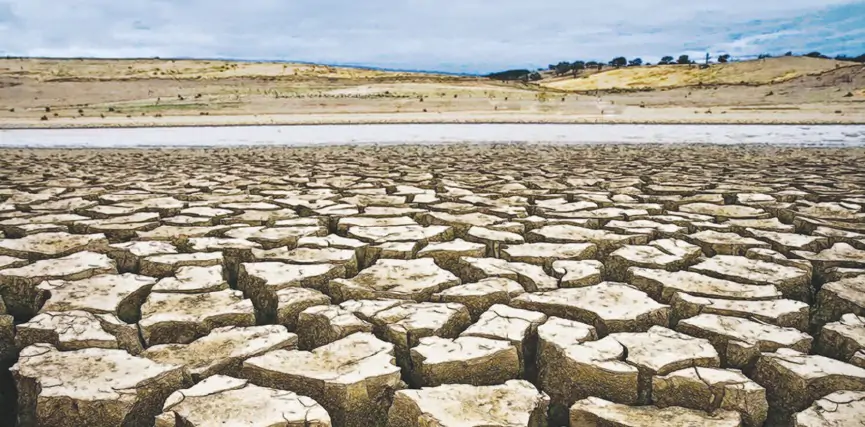
2. Use the words from the box in the correct form to complete the sentences.
scatter take evacuate put out provide
1. Emergency workers the village when the river flooded the area.
2. Rescue workers are still trying to __________ the forest fires.
3. The strong winds forced the climbers to __________ shelter.
4. Many countries have __________ food and other material aid to the hurricane victims.
5. Debris from collapsed buildings was __________ across the whole area.
Grammar
3. Decide which of the sentences can be changed to passive voice. Write them down. Explain why two of them cannot.
1. Mr Smith will collect the tickets.
_______________________________________________________________
2. The students put on a play at the end of term.
_______________________________________________________________
3. Jim is always late for work.
_______________________________________________________________
4. Julie took the message.
_______________________________________________________________
5. A local artist painted the picture.
_______________________________________________________________
6. They arrived at the theatre at 8.30 p.m.
_______________________________________________________________
4. Match the two parts to make complete sentences.
| 1. After our plane had landed, 2. We found out the train had left 3. When we got to the hotel, 4. I had never really travelled 5. The waiter had taken my plate 6. As I stepped onto the bus, | a. we learnt they had lost our reservation. b. until I decided to study abroad. c. before I finished eating my meal. d. we waited an hour for our luggage. e. I noticed I had left my pass at home. f. ten minutes before we got to the station. |
5a. Imagine five bad things that happened to you yesterday, and write them down.
Example:
- Someone stole my bike.
- My sister broke my computer.
b. Work in groups. Add time clauses to your sentences as the following examples. Remember to use the past perfect.
- When I woke up yesterday morning, somebody had stolen my bike.
- When I got home yesterday, my sister had broken my computer.
Communication
6. Read the news headlines. In pairs, use the expressions in the box in GETTING STARTED to respond to them.
| Six-year-old rescued from forest fire by pet dog | Temporary accommodation set up for volcano victims |
| Hundreds of homes damaged or destroyed in Haiti by tornado | One million dollars raised for typhoon victims in the Philippines so far |
| Earthquake survivors found under debris after ten days | Debris finally cleared by rescue teams |
Example:
A: It says here that a six-year-old girl was rescued from a forest fire by her pet dog.
B: Wow! That's amazing!
| Finished! Now I can… . | ✔ | ✔✔ | ✔✔✔ |
| • use words and phrases for different types of natural desasters • use the past perfect tense • pronounce words ending in -logy and -graphy with correct stress • talk about what to do before, during and after a natural disaster • write a news report on a natural disaster |
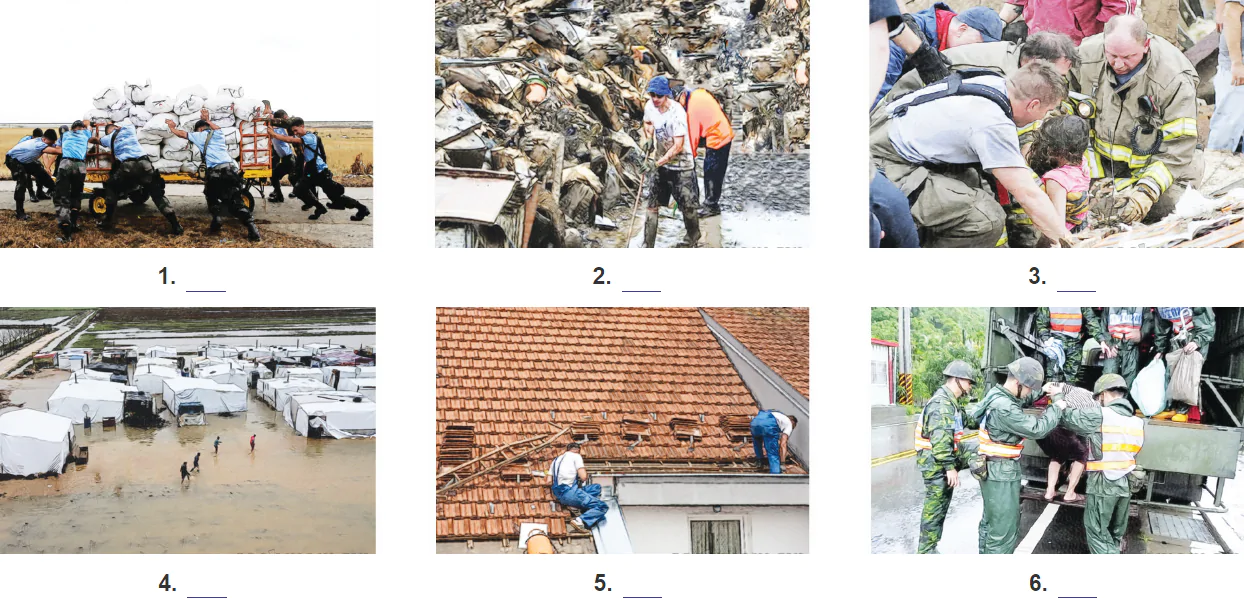
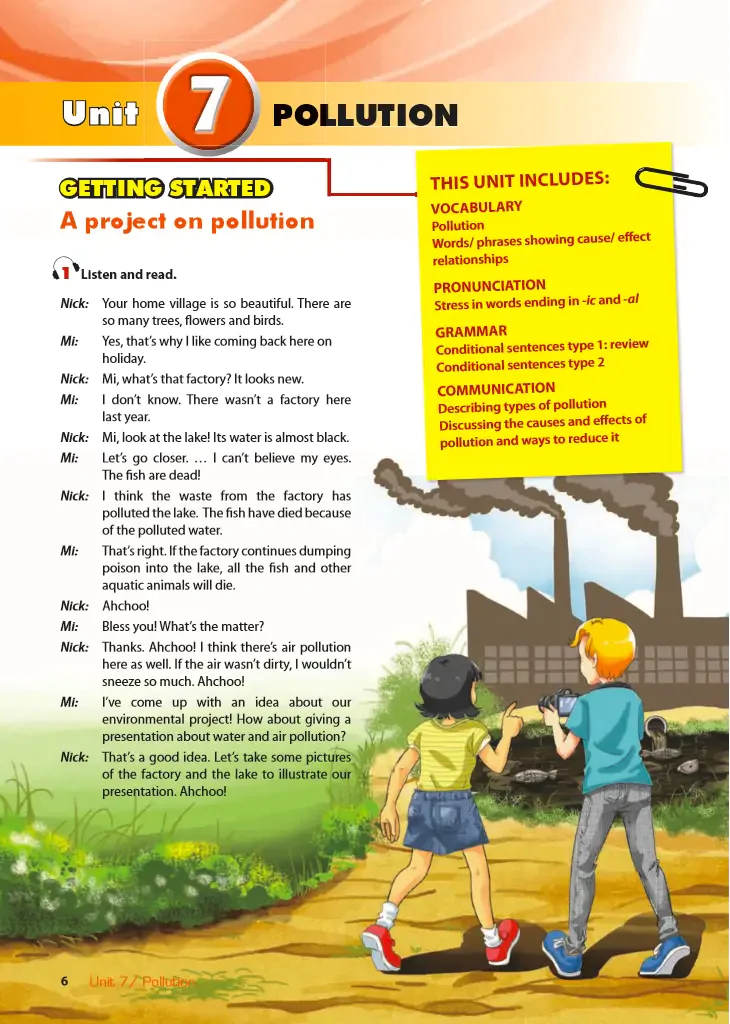
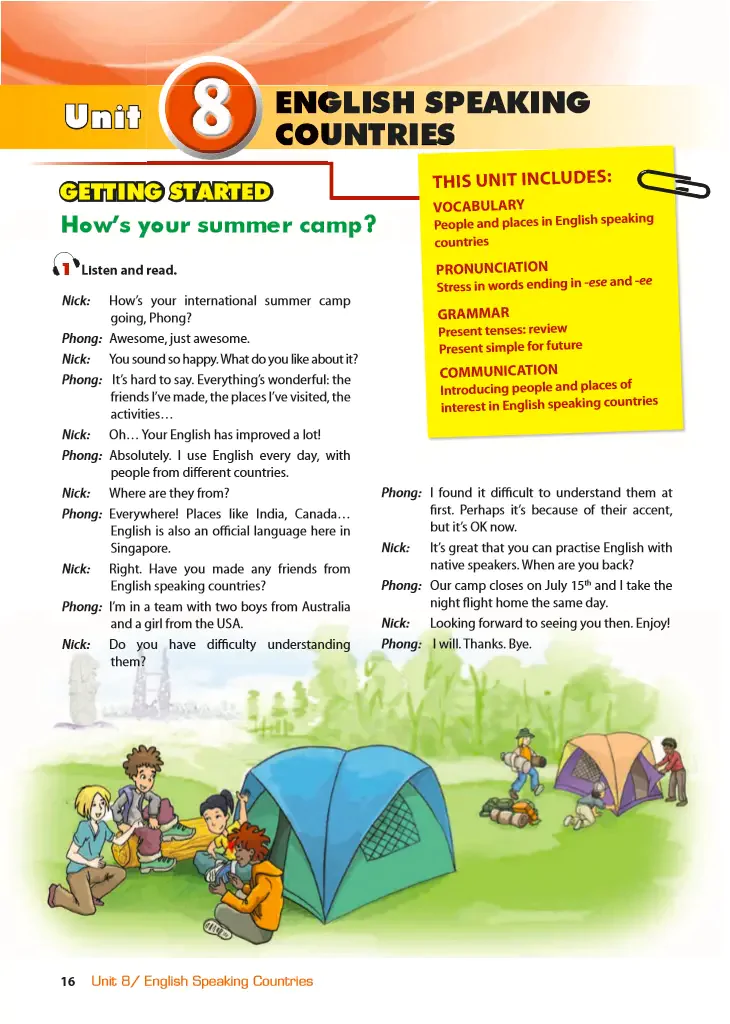
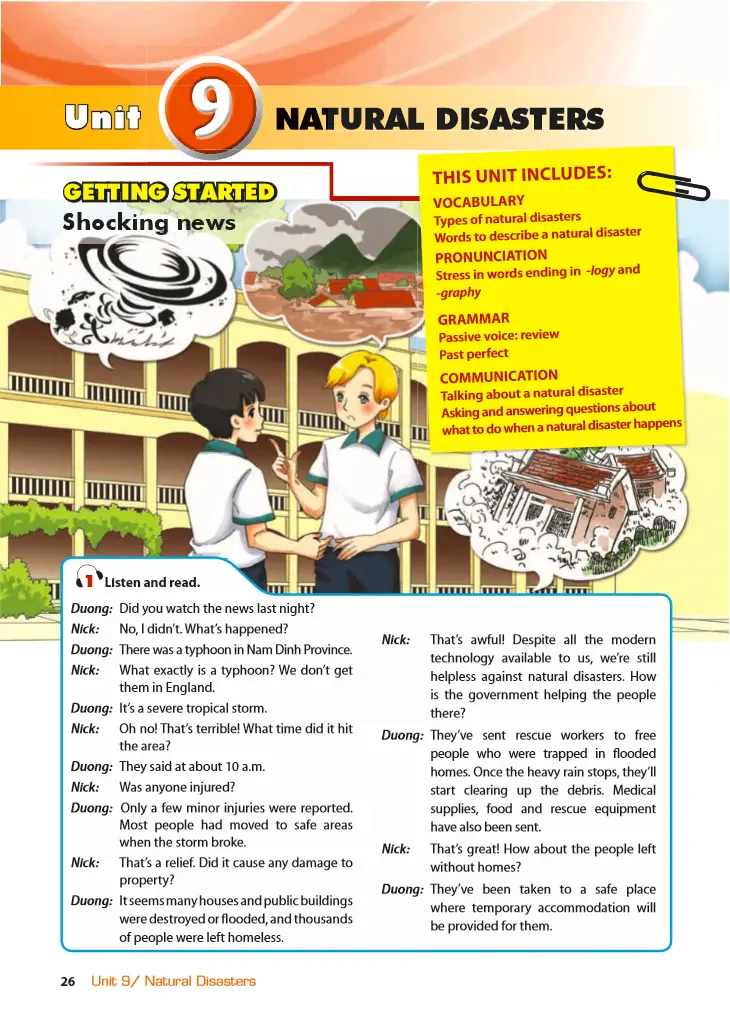
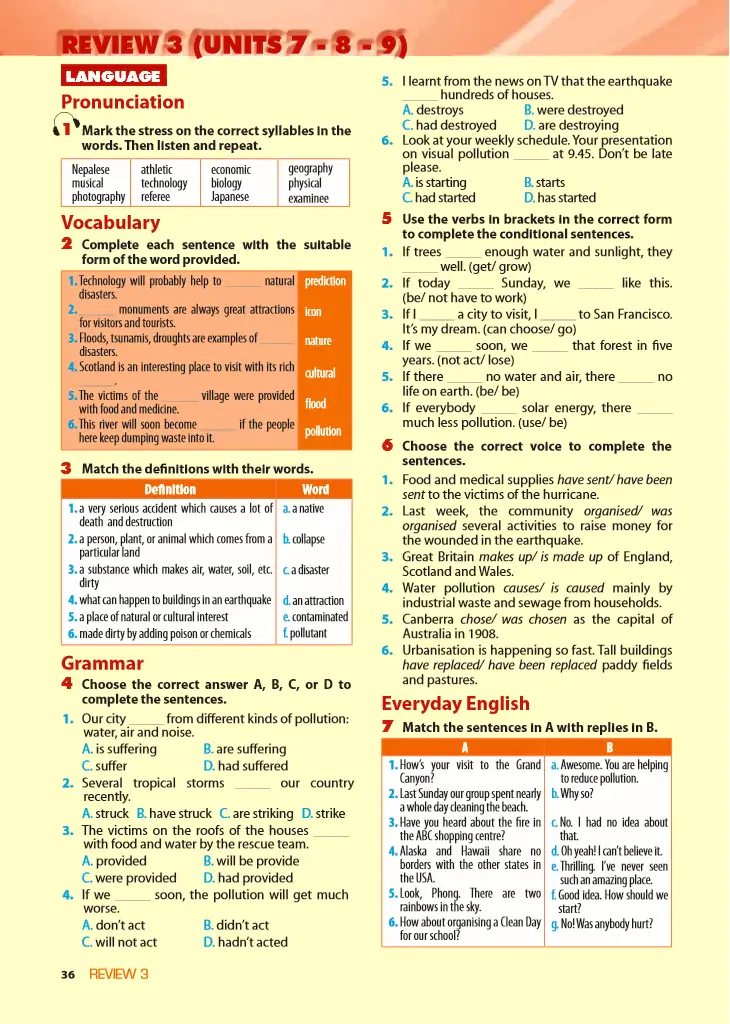
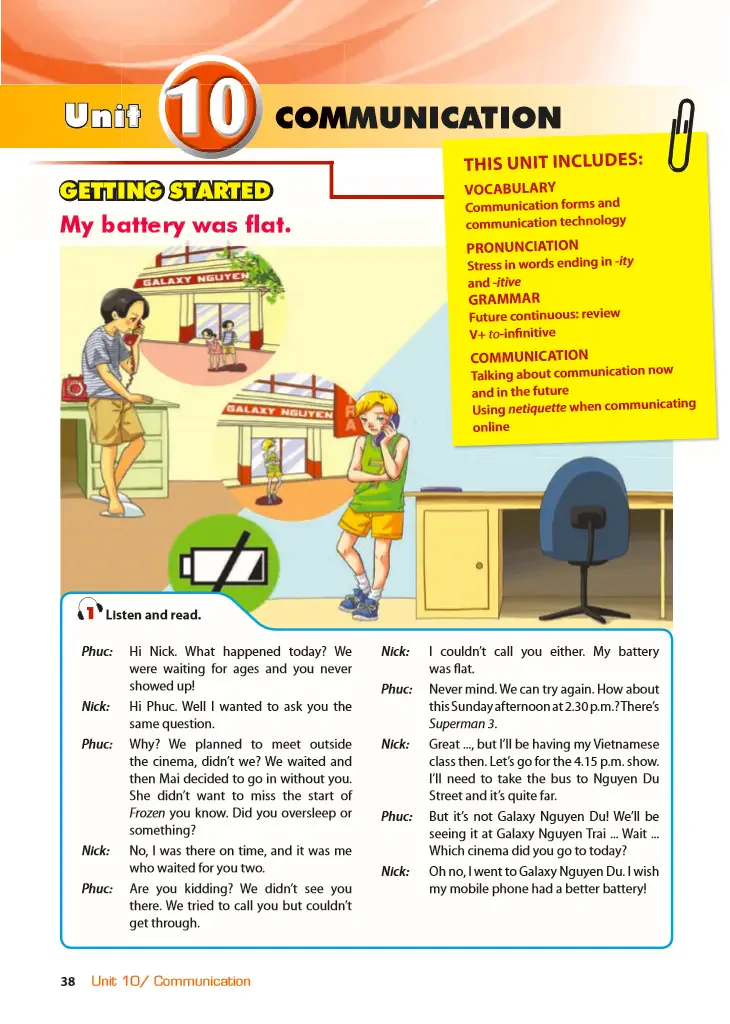
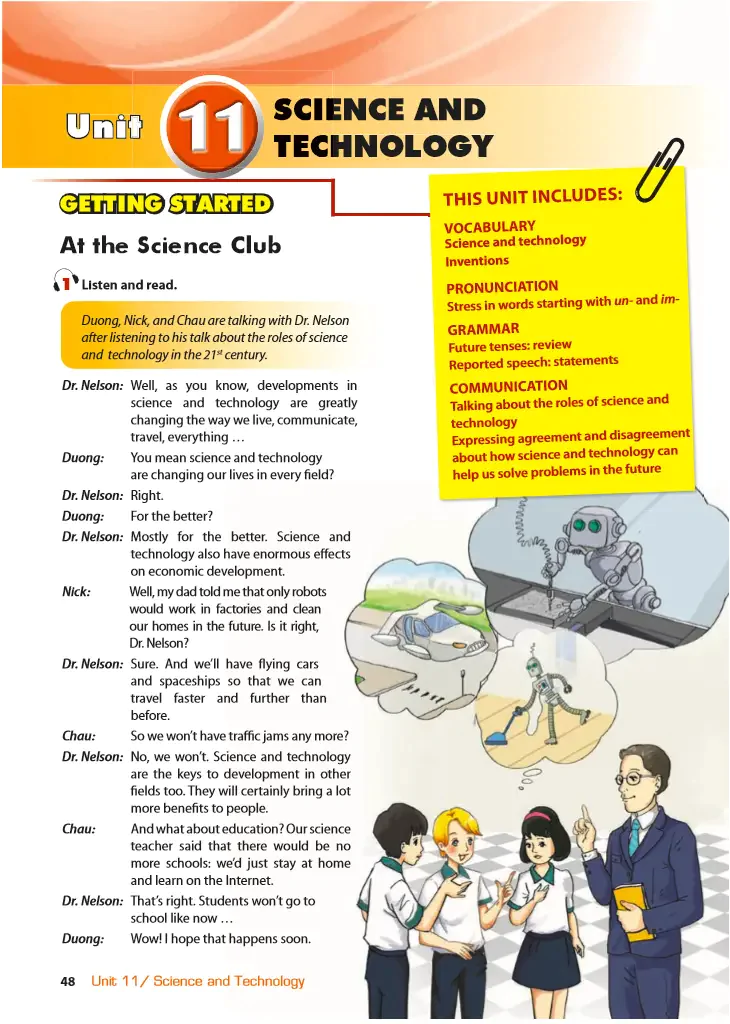
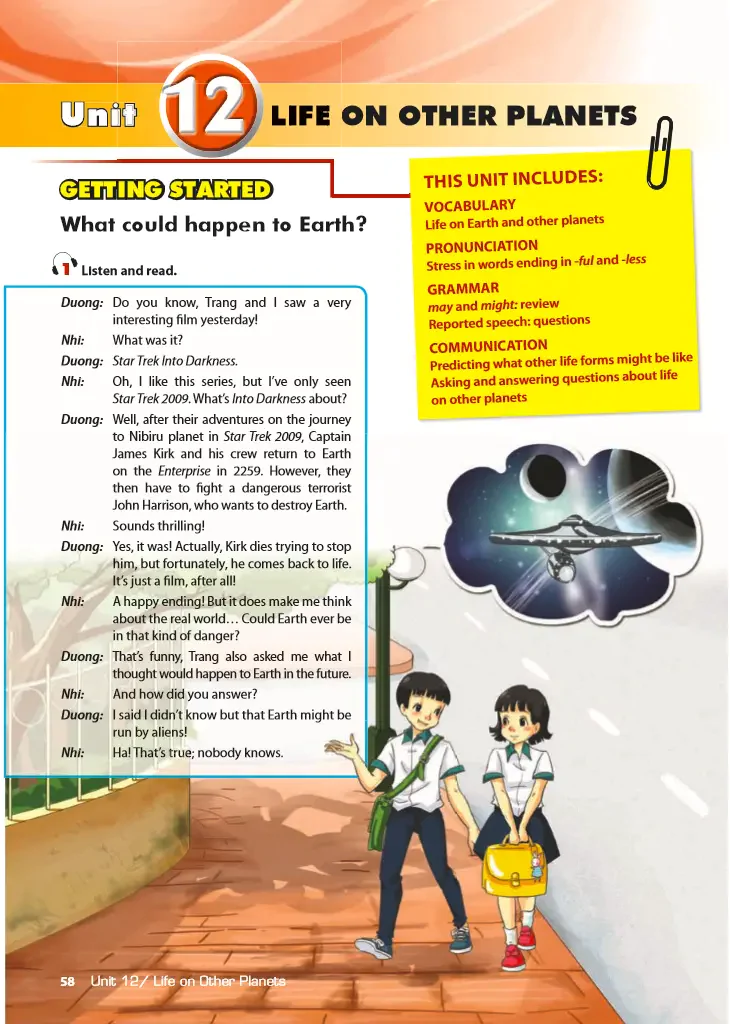
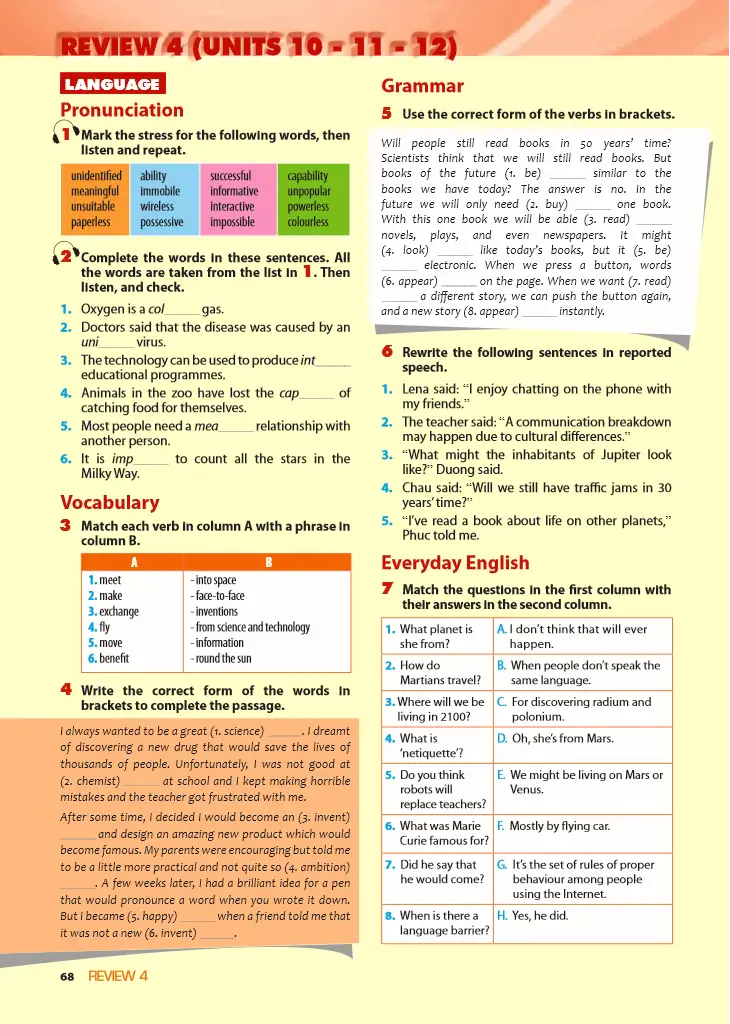



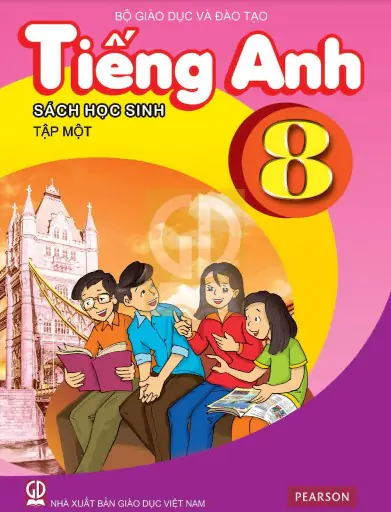
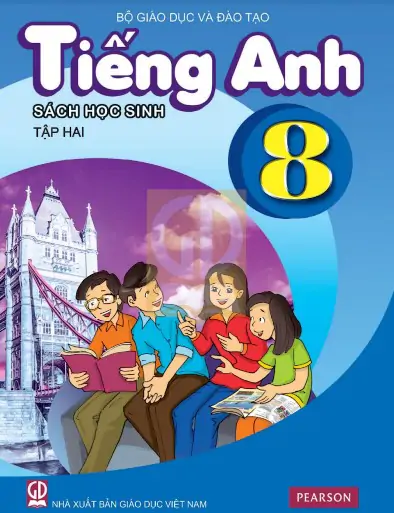
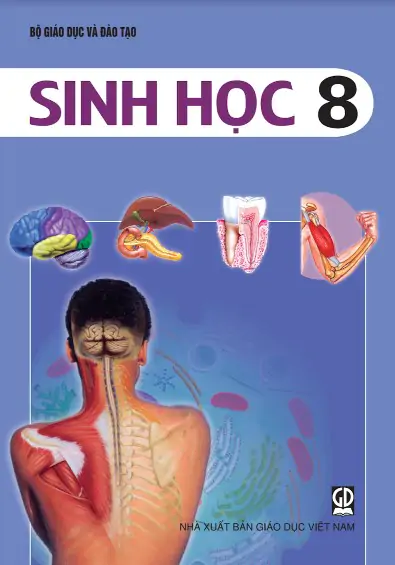
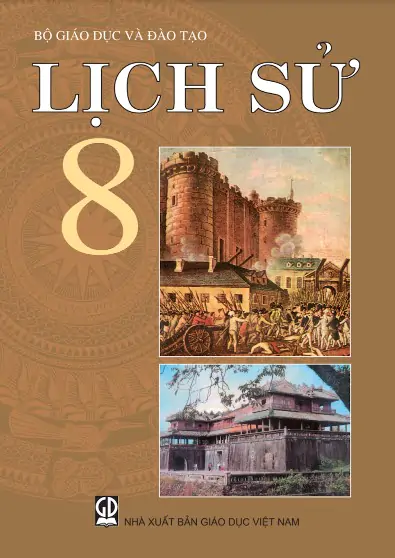




















Bình Luận
Để Lại Bình Luận Của Bạn